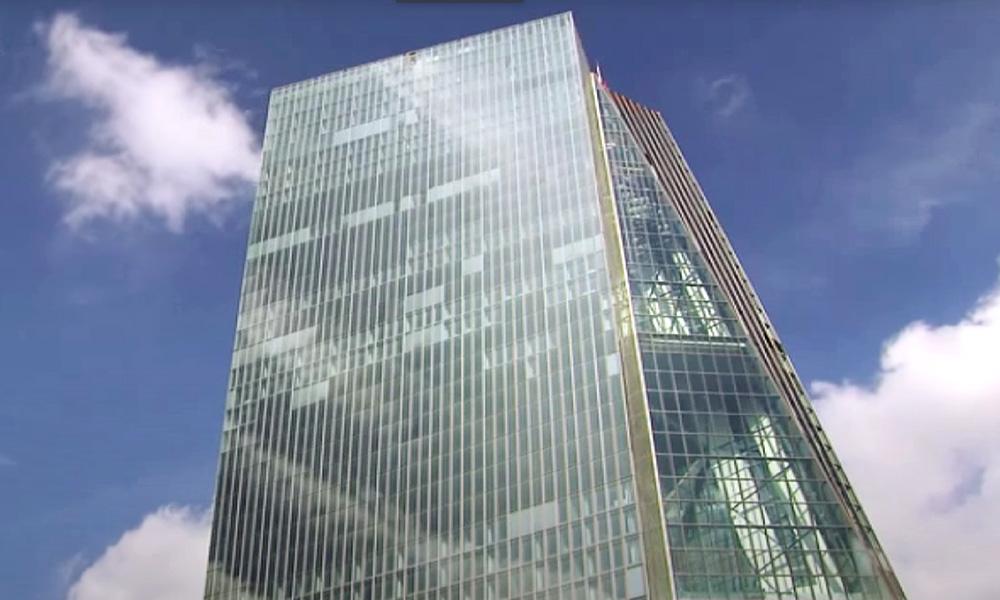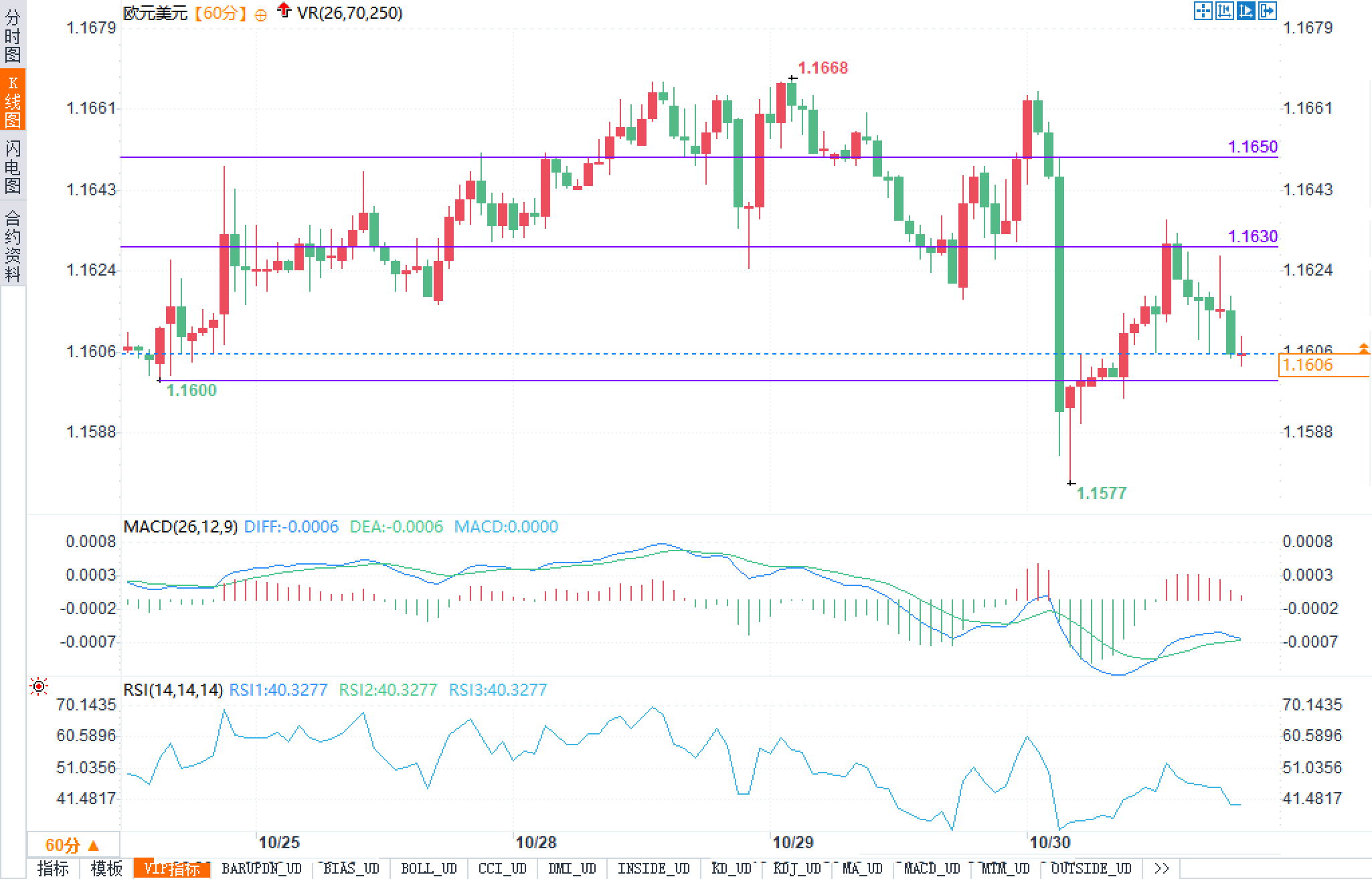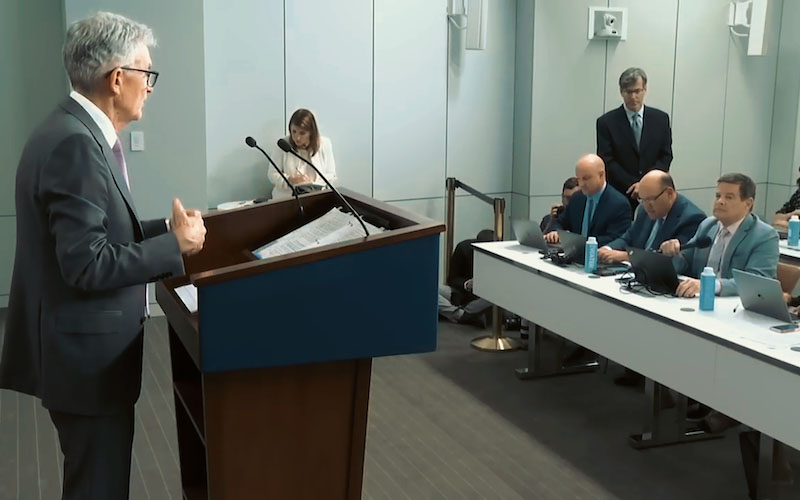Lagarde speaks tonight: Is the euro's rate-cutting cycle dead, or will it be stabbed in the back again?
2025-10-30 19:58:33

Meanwhile, better-than-expected third-quarter economic data from the Eurozone and inflation remaining near the target level have collectively shaped current market expectations regarding the European Central Bank's (ECB) policy stance. Market focus is now on whether the ECB has completed its rate-cutting cycle and how ECB President Lagarde will articulate the future policy path, which will be crucial to the medium-term trend of the euro against the US dollar.
From a macroeconomic perspective, the Eurozone economy demonstrated resilience beyond expectations, providing a crucial foundation for the euro's growth. In the third quarter, the region's GDP grew by 0.2% quarter-on-quarter, higher than the market consensus of 0.1% and better than the second quarter. Year-on-year growth reached 1.3%, slightly lower than the previous 1.5%, but still significantly better than the economic stagnation previously predicted by the European Central Bank. This performance reflects the Eurozone economy's considerable resilience in the face of global uncertainty. Notably, although the German economy stagnated in the third quarter, the broader Eurozone economic system compensated for this shortfall through growth in other member states, demonstrating a structural balance within the region's economy.
Inflation performance also supported the ECB's decision to maintain its current policy stance. Core inflation rose slightly to 2.4% in September, up from 2.3% previously, but remained within a manageable range near the ECB's 2% target. Following the September meeting, ECB President Lagarde stated explicitly that "the deflationary process is over" and emphasized that "inflation is where we expect it to be." This statement reflects the ECB's satisfaction with the current price stability. Meanwhile, continued easing of wage pressures provided additional assurance for the medium-term inflation outlook, giving the ECB confidence to maintain its current policy framework.
Regarding monetary policy expectations, the market has fully priced in the European Central Bank's (ECB) expectation of maintaining interest rates unchanged at this meeting. The main refinancing rate is expected to remain at 2.15%, and the deposit facility rate at 2.00%. This rate level falls precisely at the midpoint of the ECB's estimated neutral interest rate range, neither excessively loose nor excessively tight. Swap market data indicates only a 50% probability of another 25 basis point rate cut by the ECB within the next twelve months, and a 50/50 chance of the policy rate bottoming out at 1.75%. This pricing structure suggests that the market remains divided on whether the ECB has completed its rate-cutting cycle, and the content of this meeting's communication will significantly impact this expectation.
In contrast, the Federal Reserve's policy path has exhibited distinctly different characteristics. While the Fed cut interest rates by 25 basis points to the expected range of 3.75%-4.00%, Chairman Powell delivered a clearly hawkish signal in the subsequent press conference. He emphasized that "another rate cut at the December meeting is by no means a certainty" and stated that "there is growing support for skipping one rate cut." This statement caused market expectations for a December rate cut to drop from near certainty to around 70%. The Fed's move reflects its cautious approach in seeking a balance between economic resilience and inflation stickiness, and also provided support for the US dollar. The divergence in the policy pace of the two central banks has become a core variable influencing the euro's exchange rate against the US dollar.
Technically
According to the 60-minute candlestick chart of the euro/dollar exchange rate, the overall trend shows that the exchange rate rebounded near the support level of 1.1600, touching a low of 1.1577. Strong support formed around 1.1600, followed by a rebound to a high of 1.1668 before pulling back, and it is currently consolidating around 1.1606.

In terms of technical indicators, the MACD indicator shows that the divergence value (DIF) is slightly lower than the signal line (DEA), indicating that the market is in a weak oscillation range and may face short-term downward pressure. The RSI (Relative Strength Index) is currently at 40.33, close to the oversold zone, showing a weakening downward momentum and potentially indicating a rebound opportunity in prices.
From a price structure perspective, the 1.1600 to 1.1580 range forms a support zone, while the 1.1660 to 1.1670 area provides strong resistance. If the price further tests the support level, it may test even lower levels; however, if it breaks through the upper resistance level, it is expected to return to a strong upward trend.
Looking to the future
Market focus will be on how the European Central Bank (ECB) balances economic resilience with potential downside risks. If ECB President Lagarde explicitly hints at the end of the rate-cutting cycle at the press conference, or expresses stronger confidence in the economic outlook, the euro/dollar exchange rate may resume its upward trend, challenging higher resistance levels. Conversely, if the ECB expresses concern about slowing economic growth, or hints at further room for rate cuts, the euro may face a new round of selling pressure. It's worth noting that the ECB's next economic forecast will not be released until the December meeting, meaning the market will rely heavily on verbal guidance from ECB officials in the coming weeks to form expectations, increasing market sensitivity to every detail of this press conference.
Meanwhile, developments regarding the US dollar should not be overlooked. The dollar index's strong consolidation following the Fed's hawkish rate cut, coupled with the firm performance of US Treasury yields, naturally limits the upside potential of the euro against the dollar. The market will also closely watch subsequent US economic data and further statements from Fed officials regarding the December policy path. Changes in the divergence in monetary policies between the two major economies will continue to dominate the medium-term direction of the euro against the dollar.
- Risk Warning and Disclaimer
- The market involves risk, and trading may not be suitable for all investors. This article is for reference only and does not constitute personal investment advice, nor does it take into account certain users’ specific investment objectives, financial situation, or other needs. Any investment decisions made based on this information are at your own risk.





















